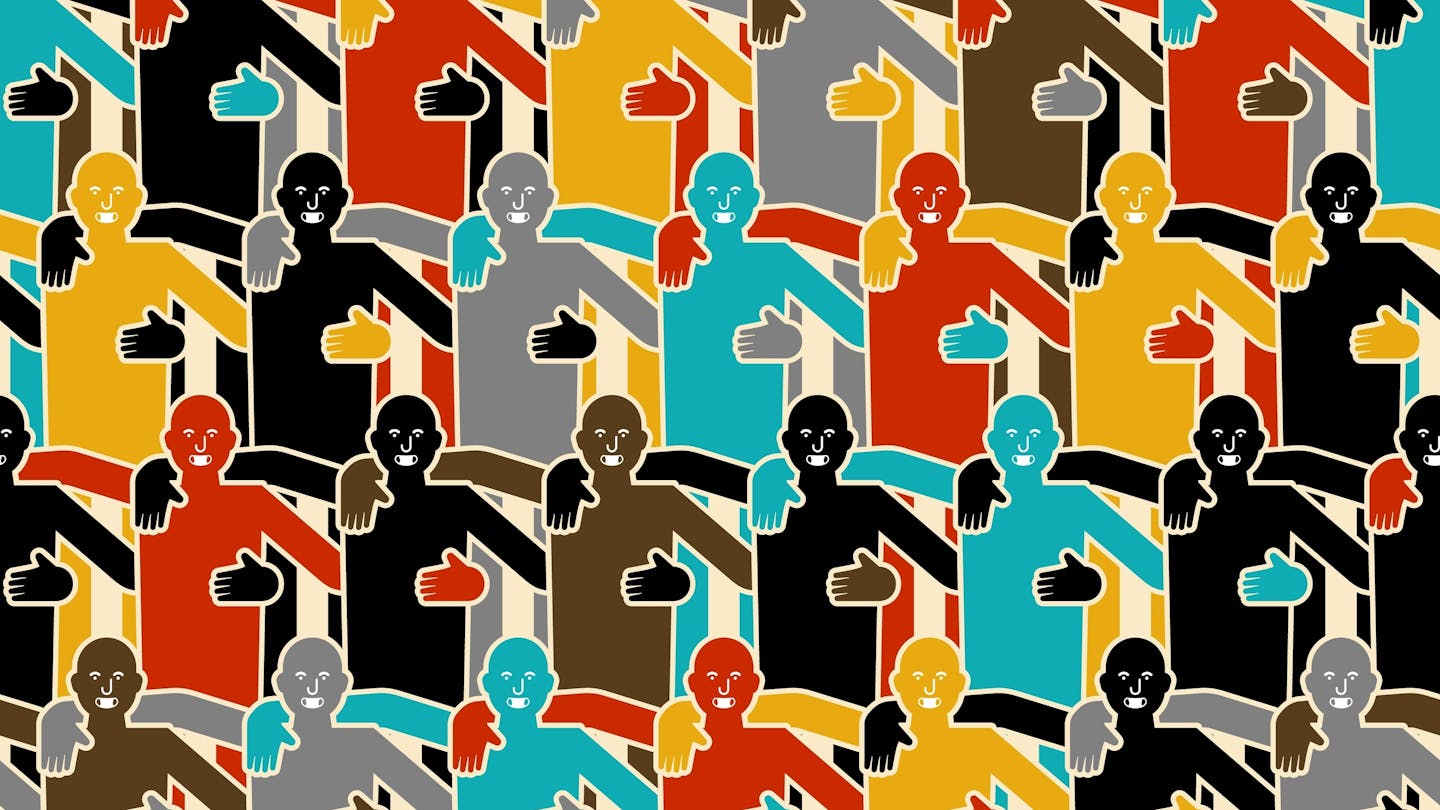
Modern Britain is plagued by a sense of disempowerment and political exclusion – a feeling that is, somewhat ironically, shared between groups of people who otherwise feel divided from one another.
This division has opened the door to a frightening rightwing populism that seeks to set “us” against “them”. And so far, the response from traditional political parties seems to amount to little more than trying to mimic rightwing rhetoric.
It’s possible that the solution to this drive towards division is simply hiding in plain sight. The term “populist politics” merely means “a political approach that strives to appeal to people who feel their concerns are disregarded”.
It’s unfortunate but not inevitable that voters are being offered merely the illusion of being listened to rather than real action to address their concerns. People don’t actually want more promises. They want a real say – whether they live in a neglected town in northern England or face personal barriers and discrimination.
Get your news from actual experts, straight to your inbox. Sign up to our daily newsletter to receive all The Conversation UK’s latest coverage of news and research, from politics and business to the arts and sciences.
But here’s where the biggest contradiction lies. While formal politics has been moving hard right, our personal politics have been headed determinedly in the opposite direction.
We have seen a powerful pressure towards the equalisation of roles and relationships in society, across gender, sexuality, ethnicity, age and disability. And these trends stretch far deeper than any narrow preoccupation with the equality, diversity and inclusion agendas that are attacked as “woke” and “elitist”.
The new social movements that have been the force for such personal, social, cultural and environmental change have also had another underlying agenda – people pressing for a real say in state and other organisations and structures that affect their lives. The growing demand has been for more participation and fewer traditional top-down, paternalistic approaches.
This has been conspicuous in areas like the NHS and care where patients and service users are demanding more information and explanations and staff are being trained to expect this and respond positively.
Thus, the rallying call of the women’s movement, “the personal is political”. And here perhaps lies the way forward – shifting the ground from phoney populism to real participation. Can we build on the quiet transformation that’s been taking place in our personal lives and relationships to rebuild our formal politics – highlighting that “the political is personal” too?
The minority politics we now have which privileges a few over the many is unlikely ever to end until the rest of us can unite as many (albeit overlapping) minorities on equal terms. The present tendency to sort our differences and relative oppression into a hierarchy will merely serve the interest of the ultimate minority – rich and powerful organisations and individuals.
Joining forces
The only convincing way to challenge rightwing populism is to give all the groups now set against each other a real say in change. Crucially, it means building equal and inclusive alliances between our different groups and movements – real grassroots work – emulating and learning from the progress we have undoubtedly made in our personal politics.
It means highlighting what we have in common as much as our differences. None of us has one single monolithic identity – we have multiple overlapping identities which offer insights and understanding into other experiences.
We’re not so different as populists would have us believe – and we don’t have to hate ourselves or others for being tagged as such. You may be divorced or in a blended family. You almost certainly have experienced your own money worries or faced mental health issues personally or with a loved one. Such intersectionality enters all our personal lives, even if we aren’t familiar with the term.
Some of the most disempowered groups have key contributions to offer here. Disabled people, including mental health service users, people with learning difficulties and long-term conditions actually have some of the most helpful learning to offer more broadly because of the scale of routine exclusions they face.
They remind us of the importance of challenging barriers in our environment, such as inaccessible buildings, or communication barriers imposed by ignoring the access needs of deaf, blind and other groups.
Like the black civil rights movement before them, disabled people have majored in sharing their experiences to build their personal confidence and assertiveness as a basis for empowerment.
Of course, all this is easier to say than do, it takes time. That’s why in terms of formal political calendars, it’s a strategy we can’t afford to delay. The general election clock is ticking and already Reform is eyeing up next year’s Welsh elections.
It means building from the bottom, not yielding to top-down rhetoric, and learning from the massive amount of experience we already have from our different movements and activism. As the black lesbian feminist Audre Lorde wrote: “We will not rebuild the master’s house using the master’s tools.” We have to the have confidence instead to join forces to use our own.
This article is republished from The Conversation, a nonprofit, independent news organization bringing you facts and trustworthy analysis to help you make sense of our complex world. It was written by: Peter Beresford, University of East Anglia
Read more:
- ‘Lived experience’ is valued in activism – but is it doing more harm than good?
- Starmer’s winter fuel allowance ‘U-turn’ sets him on a tricky path with backbenchers and voters
- What do MPs really think about immigration? We surveyed them to find out
Peter Beresford receives funding from the National Institute for Health Reseearch Applied Research Collaboration East of England as a part-time academic at the University of East Anglia and some of the work in this book was made possible through reseearch undertaken as part of this post


 The Conversation
The Conversation